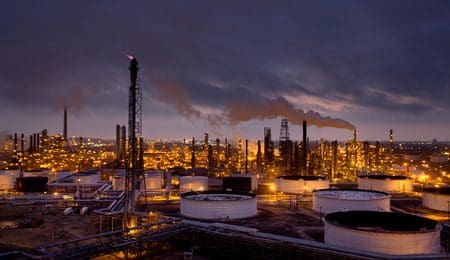Communities living near two of the largest concentrations of fossil-fuel industry and petrochemical plants in the United States are regularly exposed to toxic pollution which is devastating people’s health and human rights, reports released by Amnesty International and Human Rights Watch show today.
Amnesty International issued, The Cost of Doing Business? The Petrochemical Industry’s Toxic Pollution in the USA, which shows how people living close to the Houston Ship Channel in south-eastern Texas are breathing toxic substances, linked to a wide range of illnesses, emitted by facilities that routinely flout regulations and release pollutants into the environment. It scrutinizes four plants owned by multinational corporations.
Human Rights Watch published, “We’re Dying Here”: The Fight For Life in a Louisiana Fossil Fuel Sacrifice Zone, which documents the human health crisis in Louisiana’s “Cancer Alley” resulting from government neglect and environmental pollution, exposing residents to elevated risks of reproductive, maternal and newborn health harms, cancers, and respiratory ailments.
In their reports, the two human rights organizations call for an end to the expansion of the petrochemical industry in these “sacrifice zones” and for a rapid and equitable phase-out of the use of fossil fuels.
“People’s lives and the environment are being devastated at the hands of big business. Affected communities are predominantly Latinx/Hispanic, Black or low-income and often lack access to the healthcare they need, and face almost insurmountable barriers to justice. It is environmental racism,” said Alysha Khambay, Amnesty International’s researcher on business and human rights.
Amnesty International’s report looks in detail at four facilities owned by multinational companies – ExxonMobil’s Baytown Complex, LyondellBasell’s Channelview Complex, Shell Deer Park Chemicals, and Intercontinental Terminals Company’s (ITC) Deer Park.
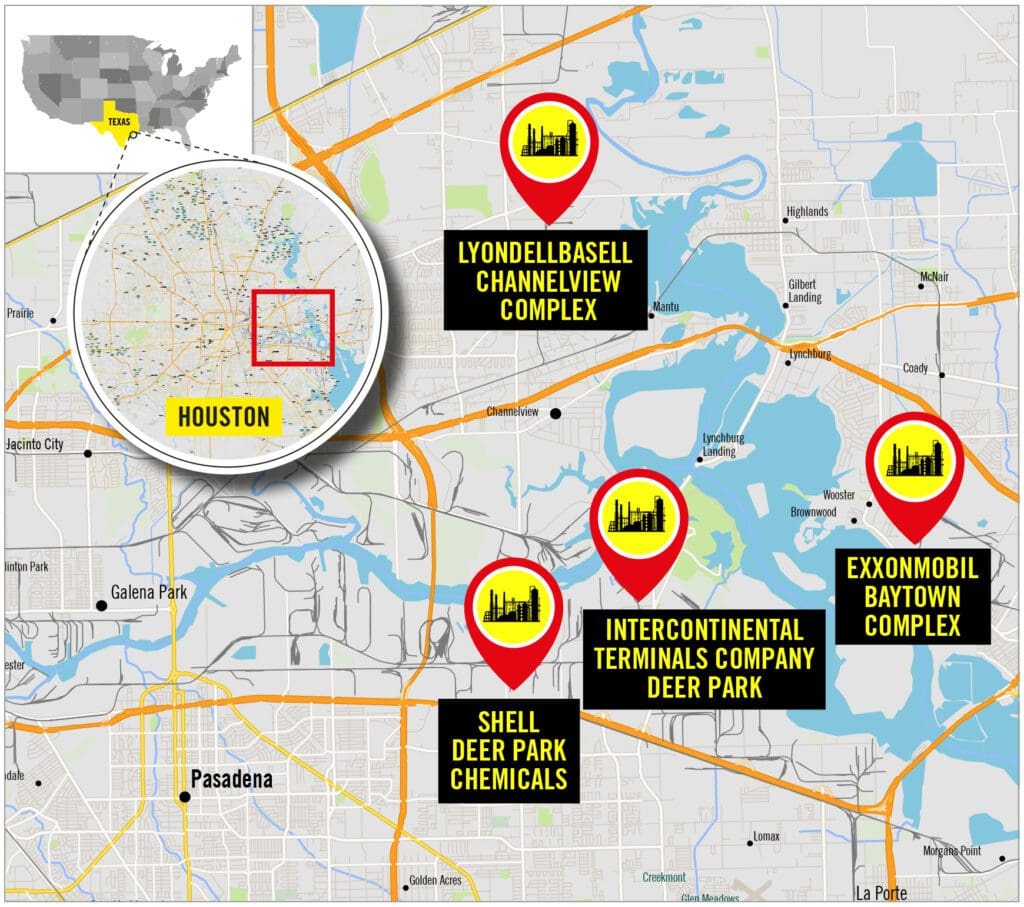 All four facilities have frequently exceeded permitted air pollution limits over the last 20 years, public records show. Fires or explosions have occurred at three of the plants – the ExxonMobil Baytown Complex, Shell Deer Park Chemicals and ITC Deer Park – within the past five years.
All four facilities have frequently exceeded permitted air pollution limits over the last 20 years, public records show. Fires or explosions have occurred at three of the plants – the ExxonMobil Baytown Complex, Shell Deer Park Chemicals and ITC Deer Park – within the past five years.
The fossil fuel-derived chemicals produced by the more than 600 plants located along the 52-mile Houston Ship Channel are used to manufacture plastics, fertilizers, pesticides and other products. These are sold to customers in the U.S. and worldwide, including some in the EU, although the bloc is set to soon require large companies to identify and address adverse impacts of their business on human rights and the environment.
“Regulations are often unenforced, and many of the companies involved appear to treat any fines from regulators, if they are imposed at all, as just another cost of doing business,” said Khambay. “Some plants have repeatedly exposed local communities to dangerous chemicals with little or inadequate warning. There is no effective regulatory deterrent to prevent these firms from harming people, which they are doing with near impunity. The current system is stacked in favor of the companies and against the people they harm. The human rights abuses related to the petrochemicals industry worldwide are often staggeringly harmful. This must and can change.”
Amnesty International conducted research between January and December 2023, which included interviews with dozens of people and scrutiny of documents and official compliance data, videos and images. Responses from the companies named are available in the annex of the report. LyondellBasell said it did not consider its depiction in the report “accurate and fair.”
Despite being a significant contributor to global greenhouse gas emissions, especially methane, the petrochemicals industry is growing rapidly worldwide as oil and gas companies look to offset anticipated falls in demand for fossil fuels. Plastics production globally is expected to double by 2040.
Impact on communities
People who work, go to school and live around the plants near the Houston Ship Channel are exposed daily to toxic pollution in the air and water, and suffer an array of often catastrophic health problems.
Industrial activity is constant and chemical odors regularly pervade homes and schools. Pollutants detected include known carcinogens such as the volatile organic compounds (VOCs) benzene, toluene, 1-3 butadiene, and ethylene oxide but with so many plants in the area, linking a single facility to a person’s specific illness is almost impossible. The area has some of the lowest air quality readings in the U.S. Higher-than-normal fine particulate matter often mixes with elevated levels of ground-level ozone to create toxic smog. Fifteen of 29 community members interviewed described how they, or a close relative, had been diagnosed with a respiratory disease, such as asthma or lung cancer, frequently experienced breathing difficulties or had a chronic cough. This is consistent with academic research exploring the health impacts of proximity to the petrochemicals industry.
“It pretty much affects me and my family every single day. There’s always smells in the air, every time you step outside for a little while.”
- Alondra Torres, who lives in the Channelview area.
Local communities are impacted by decades of cumulative pollution from chemical fires, explosions, the controlled burning of excess gases which is known as flaring, and other emissions.
The predominance of Black and Latinx/Hispanic communities in highly polluted areas of the United States is environmental racism and the result of systemic racial and discriminatory housing and land use policies, including redlining, which denied loans and other services to certain neighborhoods based on their racial composition.
Loren Hopkins, chief environmental science officer for the Houston Health Department, has said the area near the channel has six times the rate of ambulance treated asthma attacks compared to the rest of Houston, and two times the rate of cardiac arrest.
“There are two pollutants that are a big concern in Houston in terms of cancer. One is benzene and the other one is 1,3-butadiene … We really don’t know what happens when a person breathes both of them together. Whether the risk is additive, whether it’s multiplicative,” Hopkins told Public Health Watch in 2022.
Children are disproportionately affected by air pollution. A University of Texas School of Public Health study found elevated rates of childhood leukemia in those parts of the Houston area with the highest levels of benzene and 1,3-butadiene.
Juan Flores, 46, has lived in the Galena Park neighborhood for 45 years. His daughter Dominique, 7, was born with a malignant tumor on a kidney that required surgeries and chemotherapy. Juan’s father died from a heart attack at the age of 51 after decades working in the petrochemical industry. Last year Juan was diagnosed with a condition that increases the risk of developing blood cancer, which his oncologist suspects was caused by exposure to benzene.
Juan Flores, 46, has lived in the Galena Park neighborhood for 45 years. His daughter Dominique, 7, was born with a malignant tumor on a kidney that required surgeries and chemotherapy.
Juan’s father died from a heart attack at the age of 51 after decades working in the petrochemical industry. Last year, Juan was diagnosed with a condition that increases the risk of developing blood cancer, which his oncologist suspects was caused by exposure to benzene.
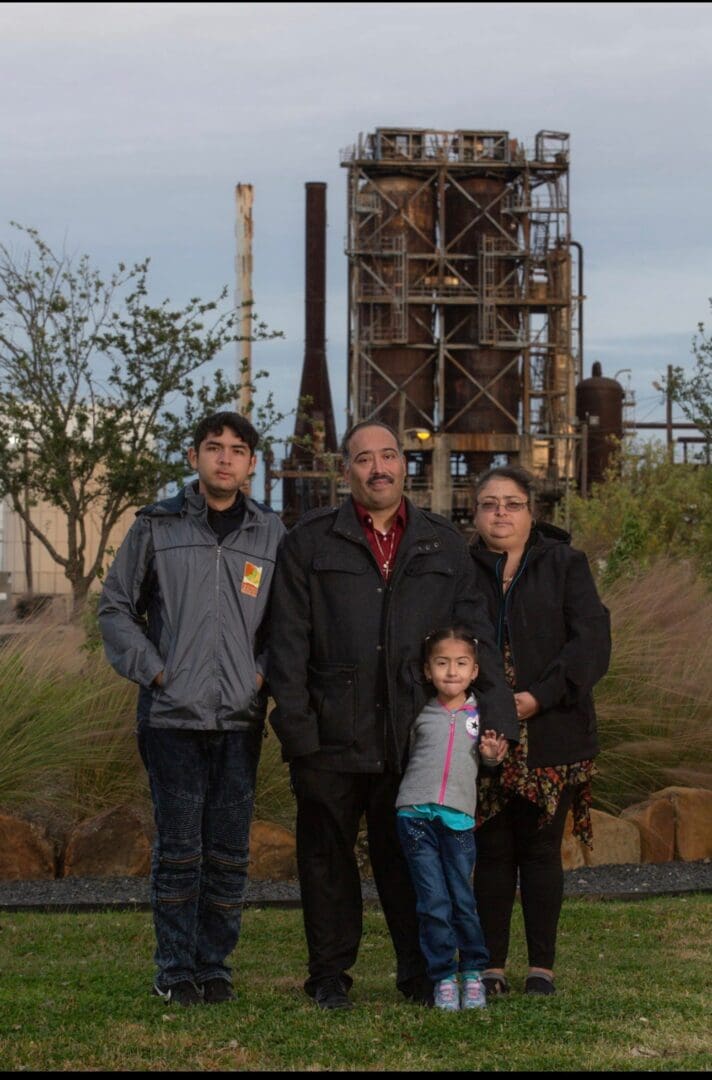
Local people face considerable barriers to accessing healthcare, which has to be paid for. At 18 percent, Texas has the highest percentage of people without health insurance of any US state. Several residents who reported health conditions to Amnesty International had not received a formal diagnosis.
A local resident said, “My mom, she recently had uterine cancer. A lot of people have cancer, breathing difficulties … The doctor can’t tell you, ‘you got this cancer because you live next to this plant.’ But there’s no way living right next to them is good. It isn’t.”
Industry and regulatory failings
There have been innumerable fires and toxic leaks in the last decade. Sometimes residents have received orders to “shelter-in-place” in homes or schools, or to evacuate following more serious incidents, some of which have caused property damage, injuries and even death.
Emergency plans officially submitted by the four facilities scrutinized in the report show tens of thousands of people could be harmed in the event of a worst-case toxic release. In schools, children are taught how to prepare for a chemical disaster.
However, there is no effective emergency alert system covering the area.
In May 2023, Amnesty International researchers witnessed a large fire at Shell Deer Park Chemicals. It took days to extinguish, and wastewater was then released into the ship channel. A tenfold increase in concentrations of benzene and 1,3-butadiene were detected in the surrounding air, but the Texas Commission on Environmental Quality (TCEQ), the state regulator, deemed these not atypically high and failed to investigate further. The World Health Organization says there is no safe level of exposure to benzene, which is “a major health concern.”
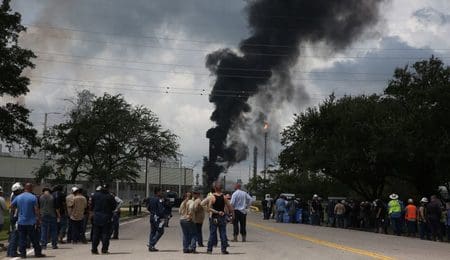
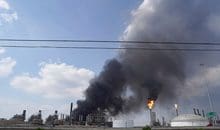
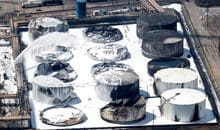
TCEQ has the authority to enforce environmental laws within the state and can theoretically require polluters to clean-up illegal pollution, take action to prevent repeat violations, and/or pay penalties. Yet state records show it imposed penalties in less than three percent of cases of unpermitted pollution in recent years. The TCEQ can legally ignore community complainants who have previously reported being affected by pollution.
TCEQ routinely renews plant operating permits, even after repeated flouting of pollution limits, and rubber stamps expansion plans, greenlighting continued pollution. When it does impose fines for breaches, they are normally below the maximum amount, and insufficient to deter recurrence, especially given the scale of the businesses involved. In some cases, money from fines has been channeled into pro-industry schemes.
A 2022-2023 regulatory review of TCEQ said that it overlooked “habitual noncompliance” and that its commissioners had become “reluctant regulators” who encouraged the industry to “self-police.” It questioned TCEQ’s impartiality and concluded “its policies may incentivize industry to conceal vital monitoring and recordkeeping violations.”
Companies can avoid penalties by invoking a legal loophole in Texas that waives enforcement for air pollution that is “unplanned and unavoidable.” The review noted that TCEQ granted this waiver in more than 85 percent of cases from 2017 to 2021.
Christian Menefee, the local Harris County Attorney, said the state of Texas could take over any enforcement case it wanted and tended to settle on terms which favored polluters, inhibiting his office’s ability to act.
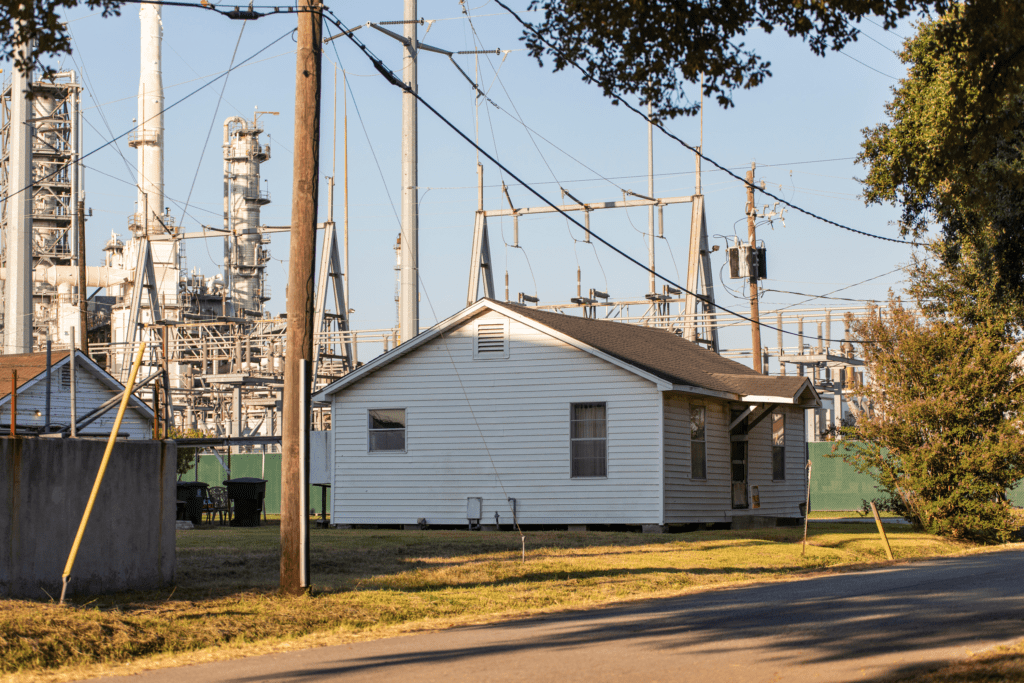
Carolyn Stone, a local resident, said: “A company gets fined less than one person who’s affected by it would spend on medical bills…it’s very unfair.”
Remedies and recommendations
All of the companies named in the Amnesty International report claim to adhere to their published human rights and sustainability commitments, while their plants are in fact inflicting grievous abuses and harming people in surrounding communities. These companies, and similar ones, should be compelled to perform routine due diligence to identify, prevent, mitigate and account for their human rights, environmental and climate impacts.
Amnesty International calls for no further expansion of the petrochemical industry in the area, and an accelerated transition to cleaner sustainable alternatives in a way that supports workers and communities. In Texas, more than 450,000 people work in the fossil fuel industry, but studies show clean energy has the potential to create more than 1.1 million direct jobs in the state within 25 years, in industries such as wind and solar power generation, and electric vehicle manufacturing. The report says that the continued exploitation of fossil fuels to make petrochemicals and plastics is ultimately harmful and incompatible with human rights.
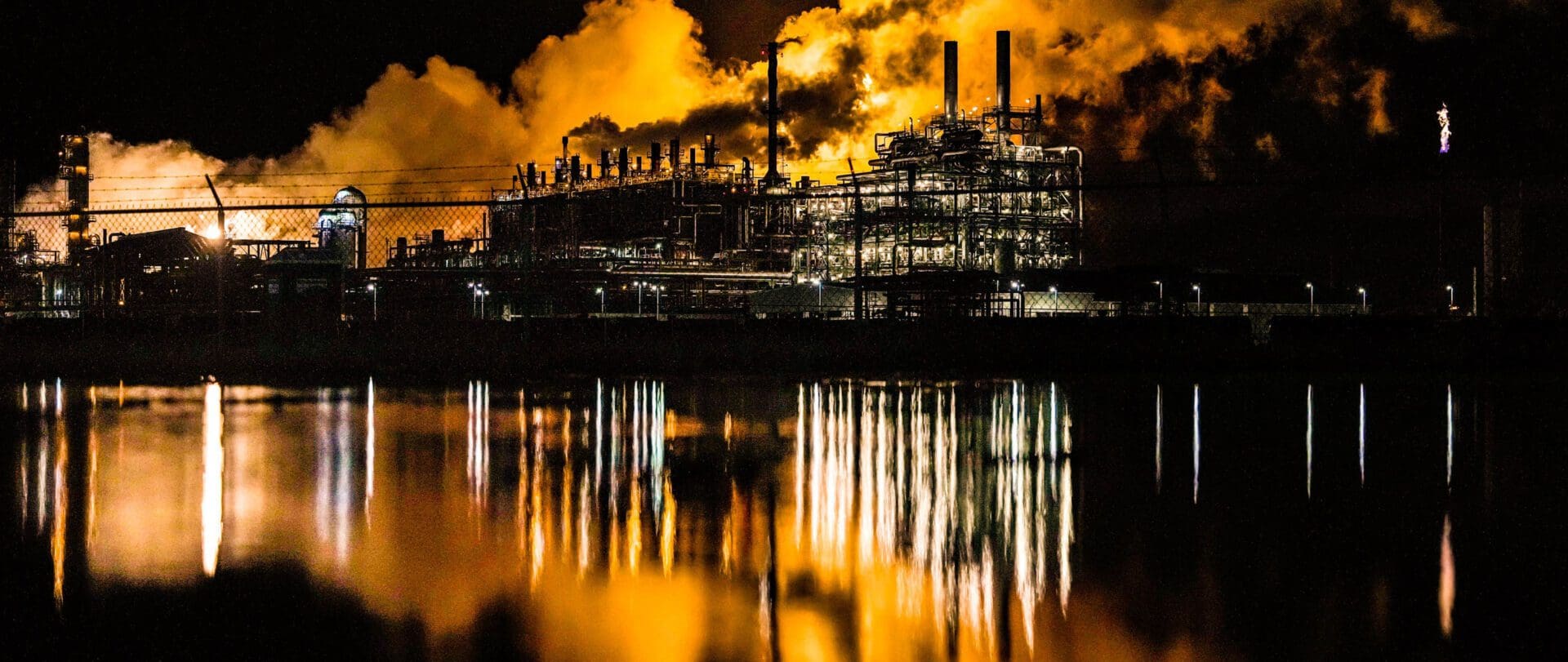
There must be more robust, accessible and effective methods for alerting residents about emergencies, and easily understandable information about leaks and risks to health made available in real time.
The report calls for much improved pollution monitoring at the fence lines of facilities to identify offending plants and better safeguard communities, more regulatory inspections and enhanced enforcement action. It calls for the federal Environmental Protection Agency to more frequently exercise its authority to enforce national laws in Texas, and punish polluters, including potentially using its powers to shut down plants.
The industry should remediate all human rights harms it has caused or contributed to and should establish medical monitoring and fund healthcare provision for local residents. The report recommends facilitating access to justice by shifting the burden of legal proof away from victims – who currently have to prove the source of the harm from which they suffered – to companies, which would instead have to show their operations are safe.
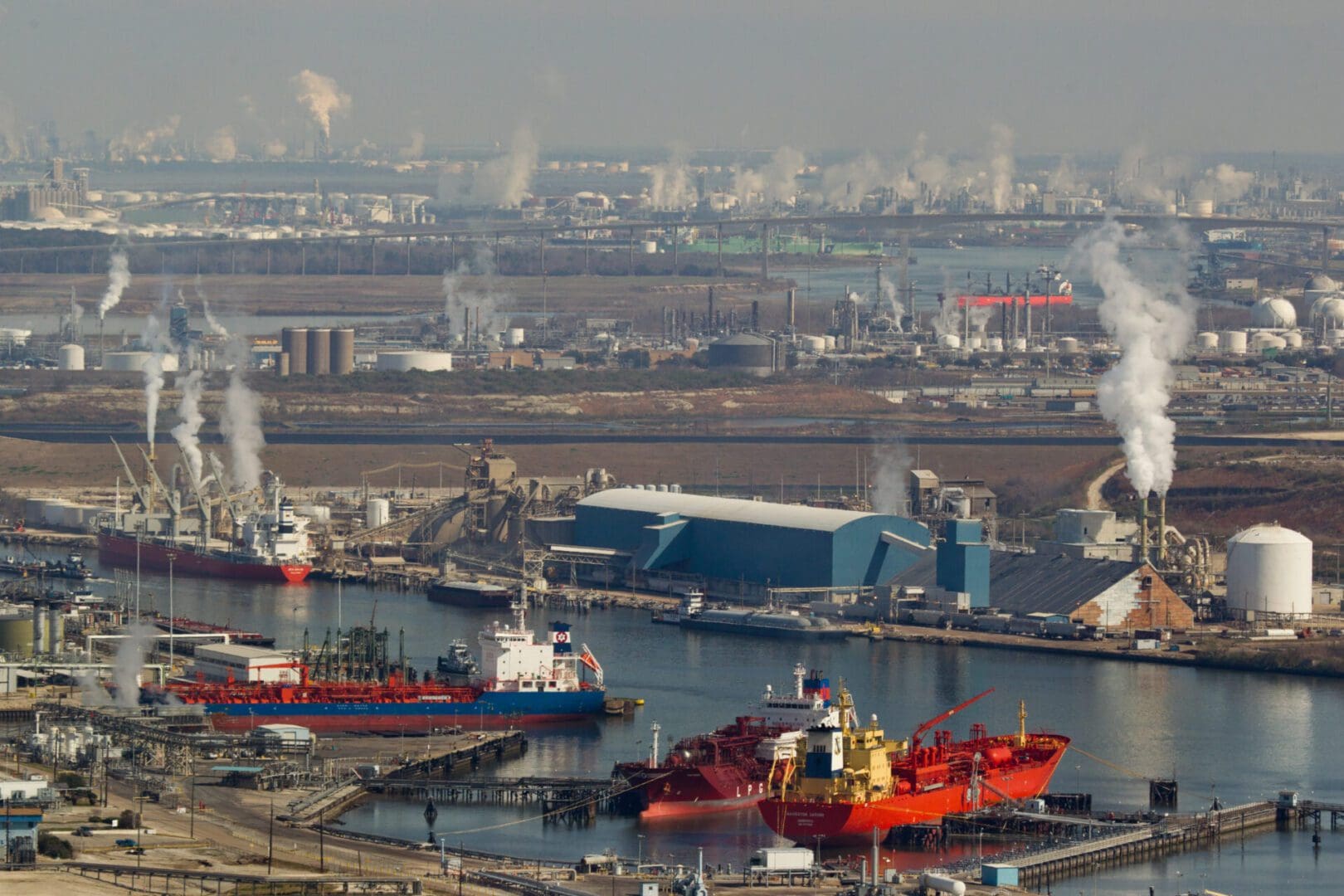
The Cost of Doing Business? The Petrochemical Industry’s Toxic Pollution in the USA
